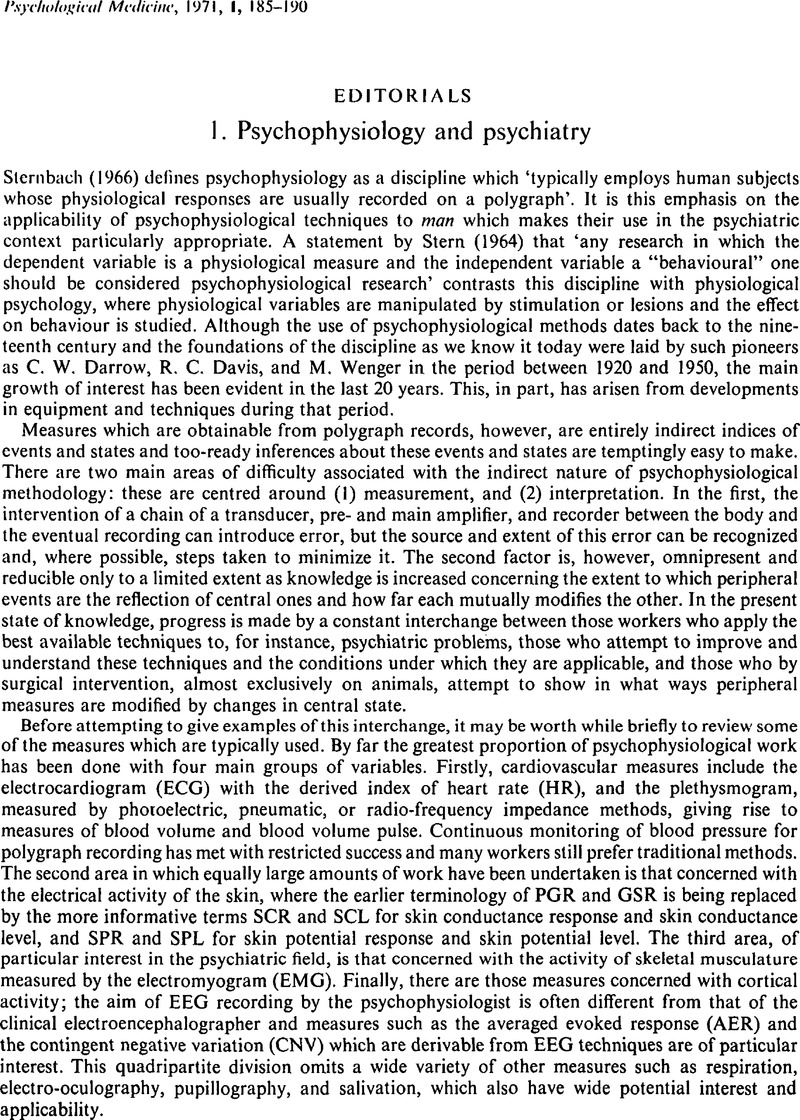Crossref Citations
This article has been cited by the following publications. This list is generated based on data provided by Crossref.
Lapierre, Yvon D.
and
Knott, Vernon J.
1981.
Neuroendocrine Regulation and Altered Behaviour.
p.
315.
Lapierre, Yvon D.
and
Knott, Vernon J.
1981.
Neuroendocrine Regulation and Altered Behaviour.
p.
315.
Venables, Peter H.
1988.
For Distinguished Contributions to Psychophysiology:.
Psychophysiology,
Vol. 25,
Issue. 5,
p.
495.
Raine, Adrian
and
Green, Michael F
2002.
Schizophrenia and schizotypal personality: a tribute to Peter H. Venables.
Schizophrenia Research,
Vol. 54,
Issue. 1-2,
p.
1.
Raine, Adrian
2017.
Professor Peter H. Venables 3 April 1923–26th April 2017.
Biological Psychology,
Vol. 129,
Issue. ,
p.
49.
Fowles, Don C.
and
Raine, Adrian
2019.
Peter H. Venables (1923–2017).
Psychophysiology,
Vol. 56,
Issue. 1,



